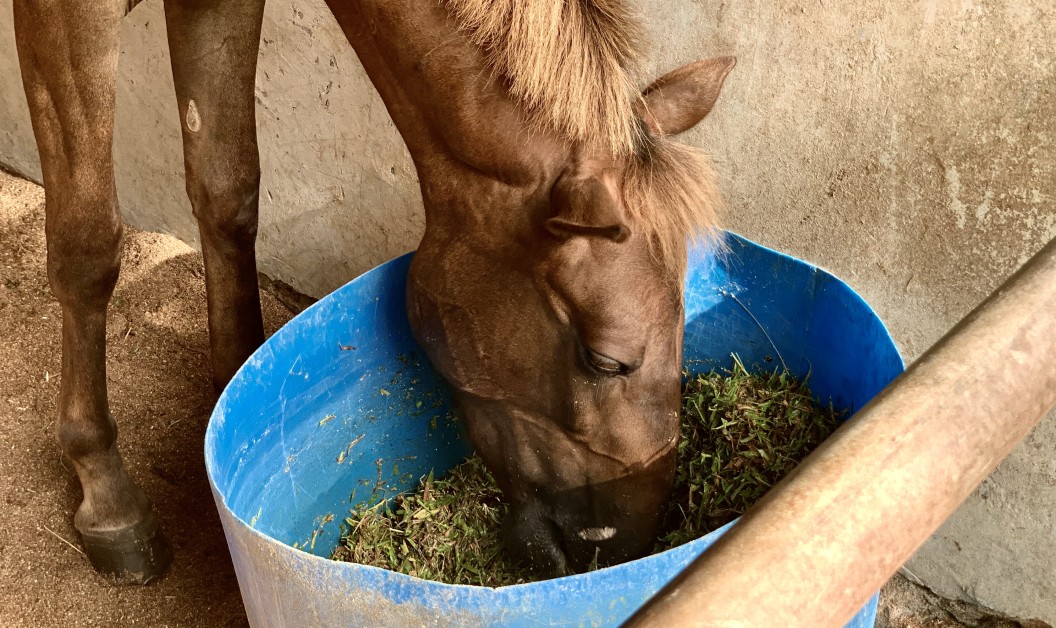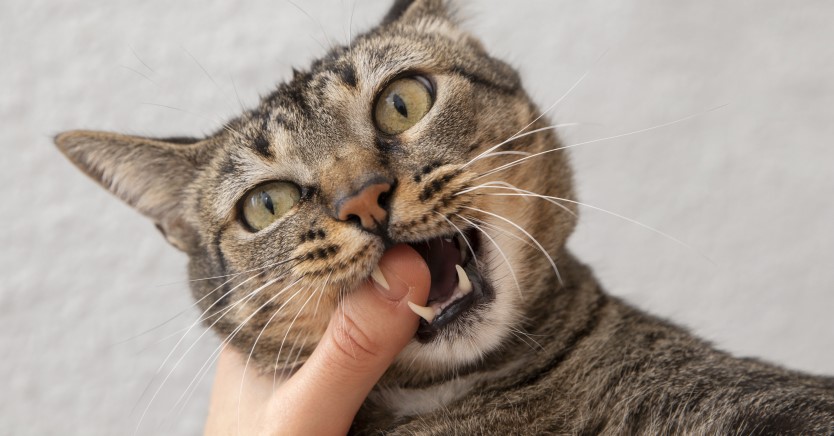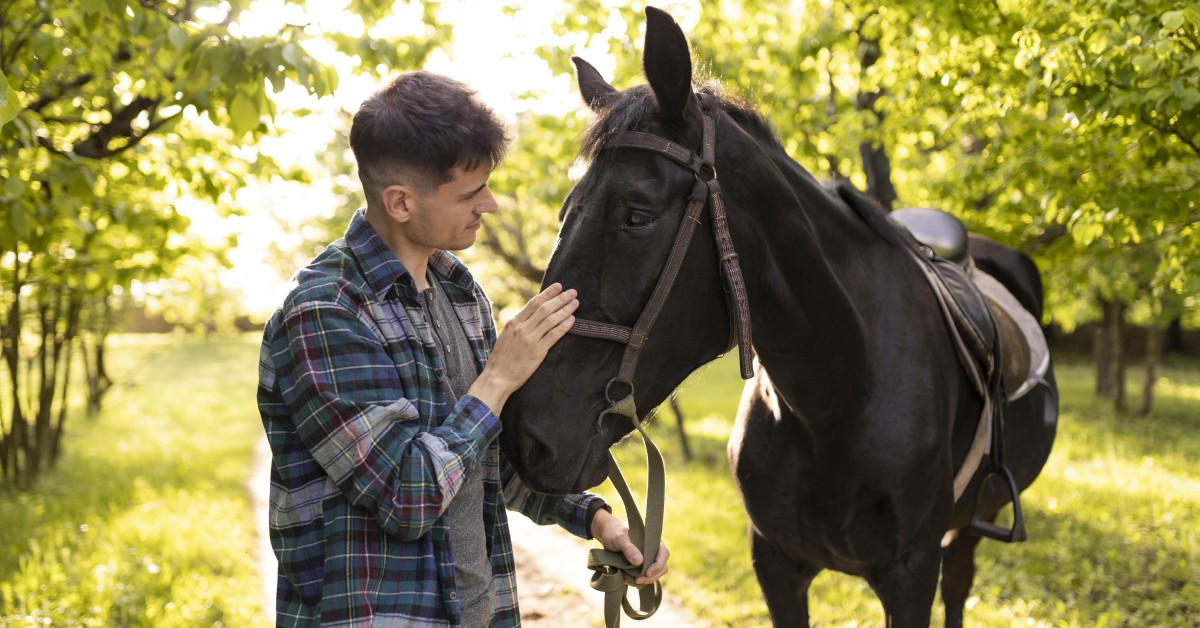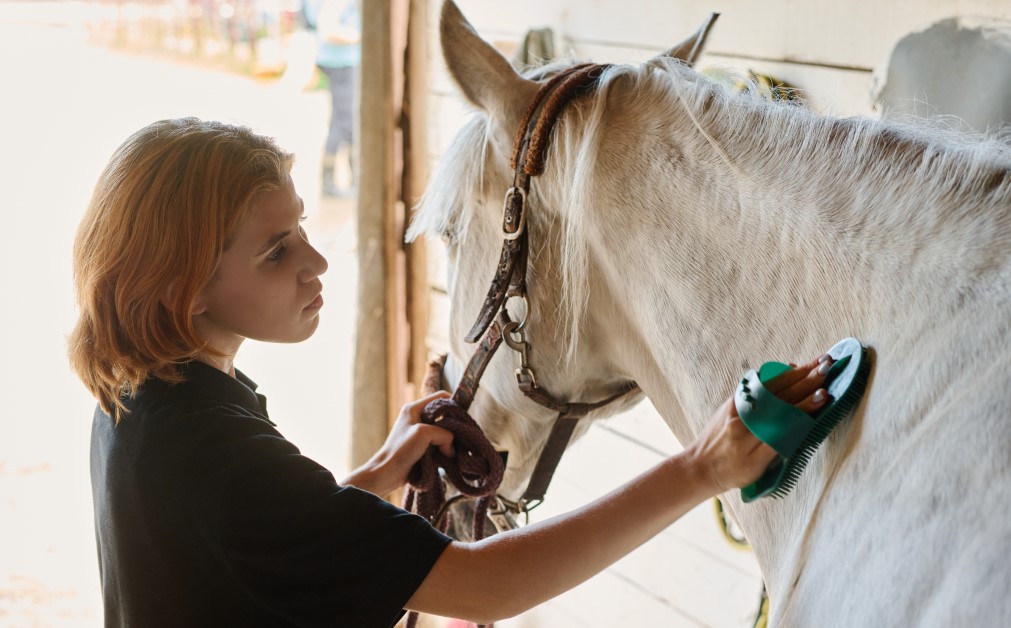Common Horse Feeding Mistakes
Horses require nutritionally-sound, substantial diets to maintain good health and ward off illnesses.

Horses are big eaters, consuming 1.5 to 2.5 percent of their body weight in forage daily. However, good horse nutrition involves more than just sending the animal to pasture. Like their favorite humans, horses require a well-rounded diet, a sufficient number of calories, and the proper nutrients to remain strong and healthy. When feeding mistakes are made, animals are at risk for nutritional deficiencies, illnesses, and weight-related problems. Take a look at some of the most common feeding mistakes that horse owners make and how to avoid them.
Overfeeding Your Horse
As a loving horse owner, you want to ensure that your pet gets enough food each day. Unfortunately, some horse owners overdo it, leading to overfeeding and potential obesity. Obesity in horses, particularly in the form of equine metabolic syndrome (EMS), can contribute to painful hoof disease, making it more difficult for the animal to stay active.
Most horses need a simple diet without supplements unless there is a specified nutritional gap. Regulating hay and other food consumption can result in better body weight and prevent weight-related conditions like laminitis and colic.
Underfeeding Your Horse
Just like you can overfeed your horse, you can also underfeed. Underfeeding is especially common among senior horses and working horses, as they generally have different nutritional needs compared to your average animal.
Senior horses are often unable to efficiently digest food as they get older and may need extra supplements. Performance horses typically burn a lot of calories through activity, meaning additional calories are required to make up for any shortfalls. If you’re unsure how much the animal should be eating, speak with your vet about their specific dietary needs.
Incorrect Measuring of Horse Feed
A common mistake that many pet owners make is incorrect measuring at meal times. Horses should always be fed by weight rather than volume. For example, you don’t want to simply give your horse scoops of feed without knowing how much it weighs. Feeding by weight ensures that your horse is receiving the right amount of calories and micronutrients.
Review the food tag for feeding rates, which are generally based on activity level and the animal’s age. Use a scale, whether it be a smaller kitchen scale or a larger luggage scale, and measure the feed to the proper amount. Once you know the correct amount, transfer it into an appropriate size scoop to make it more convenient for daily feeding.
Poor Quality Hay
Forage is essential for good equine health as it contains all of the nutrients they need, including vitamins, minerals, protein, and water. However, finding a steady hay supply can sometimes be difficult, leading some horse owners to purchase poor-quality hay or reduce the amount given at meals.
Poor hay can lead to nutritional deficiencies, and when hay contains contaminants like mold, it can be dangerous for your horse to consume. If you’re experiencing a hay shortage, consider a temporary substitution, such as beet pulp or soybean hulls, which are rich in fiber and accepted by most horses.
Over-Supplementing Your Horse’s Diet
Supplements can be useful for horse owners if an animal has a nutritional gap that cannot be filled by regular feed alone. However, some people make the mistake of over-supplementing their horse. This can lead to potential vitamin or mineral imbalances.
Another common mistake is providing supplemental calories as a way to give horses more nutrients. In reality, these supplemental calories tend to have a lower inclusion of vitamins and minerals, meaning feeding your pet more food may not necessarily balance their diet.
Inconsistent Meal Schedule
While you may feel okay if you skip a meal or eat dinner at a different time each evening, your horse may not tolerate these changes as easily. As routine-driven animals, not eating on a regular schedule can cause stress in horses.
Forage should be offered to your horse throughout the day. Even if a pasture is not available, try to simulate grazing behavior. In addition, feed your horse concentrate meals at the same time each day to keep the animal calm and healthy. A lack of a feeding schedule can lead to unwanted behaviors, such as kicking or racking their teeth on the stall.
Not Enough Salt In Your Horse’s Feed
Salt, or some combination of chloride and sodium, is essential for good horse health. These animals require salt to maintain a healthy electrolyte balance, to promote proper digestion of protein, and for adequate muscle contraction. Sodium is also important for the absorption of essential nutrients in the small intestine.
When horses don’t get enough salt in their diets, they can develop side effects like pica, dehydration, reduced muscle coordination, decreased appetite, and lack of sweat. Provide your pet with access to salt blocks to allow them to regulate their own salt intake. Alternatively, loose salt can be offered in a feeder, with the amount varying based on the animal’s activity level, environmental conditions, and sweat production.
Maintaining a Proper Horse Diet
Most pet owners work hard to ensure that their pets are well cared for, which entails a proper diet and the introduction of supplements when necessary. However, mistakes can be made that affect the health and well-being of horses, especially when made over an extended period of time. If you’re concerned about your horse’s diet, consult with your vet or an equine nutritionist.
Ready to start saving money on pet wellness care?
Then take a look at Mint Wellness, the pet wellness plan that provides fast reimbursement on routine pet care. Save on vaccinations, wellness exams, preventatives, dental, and more!
Learn More


